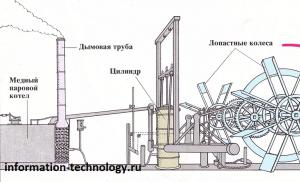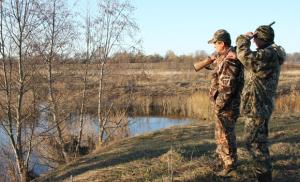Law of the Russian Federation “On Environmental Protection. Federal Law "On Environmental Protection"
A supportive environment must be available to everyone. A citizen must preserve nature in its original form, and use natural resources with caution. Federal Law No. 7 was created to protect and preserve the natural environment and to address a number of economic issues that affect this area. (You can also study the provisions).
The law is based on the Constitution of the Russian Federation. It was adopted on December 20, 2001 by the State Duma, and approved by the Federation Council on December 26, 2001. Consists of this Federal Law and other regulatory legal documents of the Russian Federation.
The current FZ-7 operates in the economic area of the Russian Federation, complies with international laws and federal laws that ensure the safety of the marine environment.
Relations are regulated in the field of nature management. They consist of the foundations of the activities and life of the peoples who live in the zone of the Russian Federation. Every resident of the Russian Federation must be provided with a favorable environment for subsequent residence.
Relationships are also governed by technical regulation laws if they are related to:
- Construction;
- Production;
- Installation;
- Storage;
- Operation;
- Disposal and implementation.
The text of Federal Law 7 in the latest edition
The following terms are now defined in the legislation:
- Objects of accumulated harm to nature management in accordance with Article 1 of the current law;
- Accumulated harm in the environment.
To protect nature, now the state authorities will build forest belts and forest parks.
Also introduced chapter 9.1 which says:
- What are forest park zones;
- On the types of land where it is prohibited to plant trees according to the law;
- On the rights of residents of the Russian Federation, which explains how to use nature and not harm nature from an environmental point of view;
- Types of plantations in this area and the procedure for compensation.
To study the latest revision in detail, download it from the following. In addition, you can familiarize yourself with.
Recent changes made to 7-ФЗ "On environmental protection"
Public control over the environment has been changed. This is described in Article 68 of FZ-7. Now residents of the Russian Federation can engage in nature conservation on a voluntary and free basis as public inspectors. To start this work, you will need an official ID. Article 68, paragraph 6, also lists their main responsibilities. In addition, a number of some articles in the law, discussed below, have undergone changes:
Article 6.
It describes what powers the public authorities have under the law. These include:
- Participation in various demonstrations on the topic of environmental protection in the constituent entity of the Russian Federation;
- Active participation in the field of economic development and federal policy in the territory of the constituent entity of the Russian Federation;
- Participation in the creation of an additional law or other regulatory legal acts in the field of federal legislation, including control over the implementation of the created law for environmental protection;
- The right to consider and adopt programs from the regions for their further implementation (in the field of nature protection).
Article 12.
The article refers to the rights and obligations of various non-profit organizations and public associations. They have the right to:
- To independently create, distribute and implement programs in the field of environmental improvement in accordance with the current law;
- To involve local and foreign citizens on a voluntary basis in activities in the field of environmental protection;
- Promote and carry out work in the field of safety of natural resources and attract own funds for the successful implementation of activities;
- Assist the state authorities of the Russian Federation, local self-government in the implementation of a number of issues related to environmental protection.
- Conduct various processions, picketing, demonstrations and rallies, etc. in accordance with applicable law to protect the environment.
No changes have been made to the latest edition.
Article 14.
Article 14 under consideration has ceased to be in force.
Article 16.
It lists the penalties for negative impacts on nature conservation.
The negative impact of protection includes the following:
- Emissions of substances that pollute the air by enterprises and other production facilities;
- Discharge of toxic substances into nearby water bodies;
No changes have been made to the latest version of the Environmental Protection Law.
Art 67
Describes production controls for environmental protection. If an enterprise carries out economic or other activities using natural resources, methods for the rational use of natural resources and their restoration are considered.
No changes were made to the latest version of the law.
Section 78
In article 78, namely in paragraph 2.1, amendments were made, according to which the amount of damage to nature is determined, which is caused due to violation of the current law in the field of environmental protection. Additionally, losses incurred by the person are taken into account. It also calculates the costs of the violation tasks that must be reimbursed to eliminate the harm. These costs are calculated by the federal executive authorities.
To view the latest amendments to the Environmental Law, download the latest revision from the link above.
According to the Constitution, every citizen has the right to a favorable environment. At the same time, the obligation arises to preserve nature, to take care of its riches. Natural resources act as the basis for sustainable development, the life of all the peoples of Russia. Legal regulation of the sphere of nature protection is carried out by the corresponding Federal Law.
Environmental Protection Law: General Information
The normative act establishes the principles in accordance with which the protection of nature is carried out. The legal foundations of the document ensure a balance in resolving socio-economic issues, preserving favorable environmental conditions, biological diversity and resources to meet the needs of present and future generations, and monitoring the implementation of the requirements of environmental legislation. A normative act regulates relations that are formed in the process of carrying out economic and other activities related to the impact on nature. 
Principles
The Federal Law "On Environmental Protection" defines general requirements for entities conducting economic and other activities that affect nature. The functioning of enterprises and the work of citizens should be carried out in accordance with the following principles:

Objects to be protected
Their list is established by the 7th Federal Law (Federal Law "On Environmental Protection"). Objects subject to protection from depletion, pollution, damage, degradation, destruction and other negative impact of economic or other activities include:

Special categories
The RF Law "On Environmental Protection" establishes a list of objects subject to priority protection. These include ecosystems, natural complexes and landscapes that have not been subjected to anthropogenic influence. The Law "On Environmental Protection" also defines the category of objects subject to special protection. This list includes:
- state reserves, sanctuaries;
- botanical gardens;
- natural monuments;
- dendrological and national parks;
- health-improving and resort areas;
- permanent living environment of small indigenous peoples.
In this category, the Law "On Environmental Protection" includes objects included in the World Heritage List, as well as those of special historical, cultural, scientific, recreational, aesthetic or other valuable value, disappearing and rare soils, forests and other vegetation, animals and other organisms and their ranges. 
Citizens' rights
The Federal Law "On Environmental Protection" was adopted in pursuance of the Constitutional provisions related to the field of environmental safety. In this regard, the normative act spelled out the rights of citizens in this area. In particular, the Law "On Environmental Protection" establishes that every Russian can send appeals to state, regional or local authorities, organizations and officials for timely receipt of complete and reliable data on the state of nature in the territory of their residence. Citizens also have the right to get acquainted with information on environmental safety measures. The Law "On Environmental Protection" allows the formation of public associations, other non-profit structures (foundations, etc.) to carry out activities related to the protection of nature. Citizens can participate in demonstrations, processions, rallies, picketing, referendums, collecting signatures for the adoption of petitions on environmental issues, as well as in other actions that do not contradict regulatory enactments. The Law "On Environmental Protection" provides for the right of individuals to apply to the court with claims for compensation for damage to nature.
Responsibilities
In accordance with the law, citizens must:
- Protect natural resources.
- Conserve the environment.
- Comply with other environmental requirements.
Interaction with government agencies
Citizens have the right to put forward proposals for the implementation of environmental impact assessment and take part in it in accordance with the established procedure. Individuals can assist local, state or regional authorities in addressing environmental issues. The Law "On Environmental Protection" provides for the right of any citizen to apply to authorized structures with statements, complaints and proposals regarding the protection of nature.
The structure and summary of the law of the Russian Federation "on environmental protection"
Section 1. General Provisions.
This section defines the following: the objectives of the environmental legislation of the Russian Federation, the system of environmental legislation, the basic principles of environmental protection, objects of environmental protection, the competence of state authorities at various levels in the field of environmental protection.
The system of environmental legislation is built on the same principle as the parent law.
Section 2. The right of citizens to a healthy favorable environment.
The right of citizens to health protection from the adverse effects of the natural environment caused by economic or other activities is consolidated; consequences of accidents, catastrophes, natural disasters, which is provided by:
- - planning and regulation of the quality of the natural environment;
- - social insurance of citizens;
- - providing real opportunities for living in favorable conditions for life and health;
- - compensation for harm caused to health;
- - state control over the state of the natural environment.
Section 3. The economic mechanism of environmental protection.
This section covers the following:
- - tasks of the economic mechanism;
- - the need to maintain inventories of natural resources;
- - sources of financing for environmental activities;
- - the procedure for issuing a license for integrated nature management;
- - limits on the use of natural resources (removal of natural resources, emissions and discharges of pollutants into the environment, disposal of production waste);
- - types of payments for natural resources (for the right to use natural resources within the established limits, for over-limit and irrational use of natural resources, for the reproduction and protection of natural resources);
- - a mechanism for economic incentives for environmental protection (tax rebates, deferred payment, preferential loans, incentive prices and premiums for environmentally friendly products, etc.).
Section 4. Rationing of the quality of the natural environment.
The section provides the basic requirements for the regulation of the quality of the natural environment, provides a list of the maximum permissible norms of impact on the natural environment.
Section 5. State ecological expertise.
The section defines the purpose of the state environmental impact assessment (verification of the compliance of economic and other activities with the environmental safety of the company), the objects of the examination, the possibility of conducting a public environmental impact assessment.
Section 6. Environmental requirements for placement, design, construction, reconstruction, commissioning of enterprises, structures and other facilities.
In this section, attention is paid to the need to take into account environmental safety in the development of feasibility studies (FS) of projects.
Section 7. Environmental requirements for the operation of enterprises, structures, other facilities and other activities.
The section provides environmental requirements separately:
- - in agriculture;
- - during reclamation work;
- - to power facilities;
- - during the reconstruction and construction of cities and other settlements;
- - when using chemicals;
- - to military and defense facilities.
Section 8. Environmental emergencies.
The law provides for the allocation of two types of crisis zones:
- 1. Zones of an ecological emergency - areas of the territory of the Russian Federation, where, as a result of economic and other activities, there are stable negative changes in the natural environment that threaten the health of the population, the state of natural ecological systems, genetic funds of animals and plants;
- 2. Zones of ecological disaster - territories where profound irreversible changes in the natural environment have taken place, resulting in a significant deterioration in the health of the population, disruption of the natural balance, destruction of ecosystems, degradation of flora and fauna.
Such zones are declared by decrees of the Government of the Russian Federation, decrees of the President of the Russian Federation on the basis of the conclusion of the state ecological expertise. In Russia, the following are recognized as such zones: Kuznetsk coal basin of the Kemerovo region, Nizhniy Tagil of the Sverdlovsk region, Bratsk, Irkutsk region.
Section 9. Specially protected natural territories and objects.
The section defines the conditions for classifying natural objects as specially protected, their legal regime and protection measures.
Section 10. Environmental control.
The section defines the tasks of environmental control:
- - monitoring the state of the environment and its change;
- - verification of the implementation of plans and measures for the protection of nature, the rational use of natural resources, the improvement of the natural environment, compliance with the requirements of environmental legislation and environmental quality standards;
As well as the levels of environmental control:
- - state;
- - production;
- - public.
Section 11. Environmental education, education, research.
The section talks about the need for universal, comprehensive and continuous environmental education and training, as well as the obligation of environmental knowledge in educational institutions, preventive environmental training of managers and specialists, and scientific environmental research.
Section 12. Resolution of disputes in the field of environmental protection.
The law determines the possibility of resolving disputes between legal entities and individuals in court.
Section 13. Liability for Environmental Offenses.
The section provides a definition of environmental offenses (guilty, unlawful acts that violate environmental legislation), according to the methods of applying sanctions, 4 types of environmental legal responsibility are distinguished:
- 1. Disciplinary (to individuals) - for non-fulfillment of plans and measures for the protection of nature and the rational use of natural resources, violation of environmental quality standards and the requirements of environmental legislation arising from the labor function or official position;
- 2. Material (to individuals) - in the form of reimbursement of expenses of an enterprise, institution or organization to eliminate harm caused by an environmental offense;
- 3. Administrative (to individuals and legal entities) - for committing environmental offenses in the form of imposing fines;
- 4. Criminal (to individuals) - for committing an environmental crime.
Section 14. Compensation for damage caused by an environmental offense.
The law determines the obligation of full compensation for harm, the procedure for its compensation (voluntarily, by a court decision). Harm can be caused by:
- - environment;
- - health;
- - property.
Section 15. International cooperation in the field of environmental protection.
The section describes the principles and types of international cooperation.
The system of environmental legislation based on fundamental constitutional acts includes two subsystems: environmental and natural resource legislation.
The main law is the Constitution of the Russian Federation, which introduces into scientific circulation the definition of human environmental activity in the field of interaction between society and nature: nature management, environmental protection, environmental safety.
The central place among the environmental norms of the Constitution of the Russian Federation is occupied by Art. 9, part 1, which states that land and other natural resources in the Russian Federation are used and protected as the basis of the life and activities of the peoples living in the corresponding territory.
The Constitution of the Russian Federation contains two very important norms, one of which (Article 42) enshrines the human right to a favorable environment and to compensation for damage caused to his health or property, and the other proclaims the right of citizens and legal entities to private ownership of land and others. natural resources (Article 9, Part 2).
The first concerns the biological principles of man, the second - his material foundations of existence.
The Constitution of the Russian Federation also formalizes the organizational and legal relationship between the Federation and the subjects of the Federation. The current system of legislative and regulatory acts in the field of environmental protection, environmental safety and rational use of natural resources in accordance with the requirements of the Constitution of the Russian Federation is illustrated in Table. 1.
On the subject of its jurisdiction, the Russian Federation adopts federal laws, which are binding on the territory of the entire country. Subjects of the Russian Federation have the right to their own regulation of environmental relations, including the adoption of laws and other regulations. The Constitution of the Russian Federation establishes a general rule: laws and other legal acts of the constituent entities of the Federation should not contradict federal laws. The provision of the Constitution of the Russian Federation is concretized in the sources of environmental law.
Firstly, this Law is the main legislative act, the subject of regulation of which is environmental relations.
Table 1.
|
Federal level |
Regional level |
|
Russian Federation Federal laws defining legal regulation on the territory of the Russian Federation Decrees of the President, resolutions of the State Duma, resolutions (orders) of the government of the Russian Federation System of state standards (GOST) and building codes (snip) System of industry standards (Osty, RD, Sanpin, MPC, OBUV, etc.) System of interdepartmental and departmental regulatory and methodological documentation International treaties, conventions, agreements and other international legal acts to which the Russian Federation is a party (legal successor) |
Subjects of the Russian Federation The laws of the constituent entities of the Russian Federation Resolutions (orders) of the executive authorities of the constituent entities of the Federation System of regional standards and regulations Bilateral international agreements |
By regulating these relations, it sets as its goal the solution of three tasks: preserving the natural environment, preventing and eliminating the harmful effects of economic activity on nature and human health, improving and improving the quality of the environmental protection system.
The law heads the system of environmental legislation, i.e.
Secondly, the main direction of the Law is to ensure a scientifically grounded combination of environmental and economic interests with the priority of health protection and natural human rights to a healthy environment. As such a justification are the maximum permissible norms of the impact of economic activities on the natural environment. Exceeding these standards is an environmental offense.
Thirdly, in contrast to sectoral laws (for example, the foundations of land legislation), the Law formulates requirements for sources of harmful effects on the natural environment, i.e., for enterprises, institutions and organizations that have a harmful effect on the natural environment.
Fourth, the central theme of the Law is a person, the protection of his life and health from the adverse effects of environmental protection. In the Law, a person is considered both as a subject of impact on the natural environment, who is responsible for his activities, and as a subject of such impact, endowed with guarantees for compensation for harm caused.
Fifthly, the norms of the Law establish the mechanism for its implementation, which consists of a system that includes economic incentives for the business executive in the EPO and measures of administrative and legal impact on violators of environmental and legal regulations. The law establishes the economic mechanism of an environmental protection system, as well as the obligatory state environmental expertise, state environmental control, its powers to suspend, restrict, terminate the activities of environmentally harmful industries, measures of administrative and criminal liability for environmental offenses, compensation for harm to the natural environment and human health, environmental education and upbringing.
The effectiveness of this mechanism depends on the level of organizational activity of the environmental supervision and control bodies, on the material, technical and financial support of environmental protection measures, on executive discipline, as well as on the state of environmental culture in society.
The provisions of the legislation in the field of environmental safety are aimed at preserving the environment and natural resources. This approach is due to the prescription of the Constitution that every citizen has the right to a favorable environment for life. The Russian Federation has several laws that regulate environmental issues.
The environmental laws of the Russian Federation are aimed at protecting and ensuring the country's natural resources. The provisions of the legislation apply not only to the consequences of human activity. Prescriptions are established to eliminate man-made and natural disasters, as well as to minimize their damage to the environment.
A number of legal acts are in force in Russia to regulate the relevant provisions. adopted on July 19, 1995. The purpose of the document is to ensure the constitutional right of citizens to a favorable environment and prevent negative impacts. Federal Law 174 resolves the following issues:
- powers of the President of the Russian Federation, federal and regional authorities;
- carrying out state ecological expertise;
- the rights of citizens and public organizations, as well as customers of the documentation on the examination;
- financial support, international treaties;
- responsibility for violations of the law, as well as the procedure for resolving disputes that arise.
Federal Law "On Production and Consumption Waste" 89 FZ adopted on May 22, 1998. It regulates the issues of treatment and disposal of waste that may harm citizens or the environment. The possibilities of recycling and reuse are taken into account. The provisions of Federal Law 89 regulate the following aspects:
- powers of the Russian Federation, its regions and local self-government bodies;
- general requirements for waste management;
- rationing, state accounting and reporting system;
- economic regulation of the tasks set;
- regulation of actions aimed at the management of municipal solid waste;
- system of state supervision over the execution of prescriptions;
- responsibility for violations.
Regulates issues aimed at protecting the health of citizens and ensuring a favorable ecological environment for life. The document regulates the following legal norms:
- rights and obligations of citizens, individual entrepreneurs and legal entities;
- sanitary and epidemiological requirements for ensuring environmental safety and environmental protection;
- provision of preventive measures;
- state regulation of prescribed actions and organization of state federal supervision;
- responsibility for violation of the prescribed norms.
Federal Law "On the Protection of Atmospheric Air" 96 FZ adopted on April 2, 1999 and regulates aspects related to the prevention of atmospheric air pollution. This is due to the fact that such, according to Federal Law 96, is a vital component for the life of humans, plants and animals. On the basis of this opinion, legal norms for the protection of atmospheric air are established. They are expressed in the following provisions:
- formation of management in the field of atmospheric air protection;
- organization of relevant activities;
- state registration of sources of harmful effects on the atmosphere;
- provision of state supervision and economic mechanism of protection and regulation;
- rights of citizens and legal entities in the field of atmospheric air protection;
- responsibility for violation of this law;
- international agreements and cooperation of the Russian Federation.
The main environmental law is Federal Law 7 "On environmental protection"... The document regulates general aspects related to environmental safety. The legal norms of interaction between society and nature, arising in the course of the economic activities of citizens, are prescribed.
Description of the environmental law
The Federal Law on Environmental Safety of the Russian Federation "On Environmental Protection" was adopted on December 20, 2001. In structure, it consists of several chapters that combine thematic provisions of legislation on environmental safety. Federal Law 7 contains the following legal norms:
- general provisions that regulate the basic concepts of the law and the legal principles on which it is based, the categories of objects that negatively affect the environmental situation are also taken into account;
- fundamentals of environmental management- the powers of federal, regional and municipal bodies of state power, the delineation of rights and the management system are determined;
- rights and obligations of citizens, public associations and legal entities prescribed in the context of the state system of measures to ensure environmental safety;
- principles of economic regulation are based on the penalty for negative impact and the determination of persons who are obliged to pay the appropriate fee on a regular basis; a control system and state support for activities aimed at ensuring environmental safety are also prescribed;
- environmental regulation- standards for permissible actions in violation of ecology are determined;
- environmental impact assessment and the procedure for conducting environmental impact assessment;
- environmental safety requirements when carrying out certain types of economic or other activities;
- procedure for identifying zones of ecological disasters and emergencies;
- accounting of natural objects that are listed under special protection, their legal regime and measures aimed at their preservation;
- forest park green belts- their creation, placement of information about them, principles of protection;
- state environmental supervision the situation, the functioning of its unified system and the security fund;
- state environmental supervision - ensuring production and public control, accounting of facilities, the activities of which have a negative impact on the environment;
- defining the principles of environmental research;
- the foundations of the formation of ecological culture- measures aimed at education and enlightenment of citizens;
- liability for violations of the law- its types, the procedure for resolving disputes, compensation for damage caused and limitation of the activities of the relevant facilities;
- elimination of accumulated harm to the environment- identification of such and the organization of measures for elimination;
- principles of international cooperation Of the Russian Federation on environmental safety.
V final provisions Law 7 FZ includes instructions on its entry into force, as well as bringing other legislative acts into legal compliance. The law came into force on the day of its official publication - January 10, 2002. Since then, it has undergone a number of changes aimed at eliminating inaccurate wording and updating legal norms. The last amendments were made in 2016.
Changes in the law on ecology
Amendments to the environmental law "On environmental protection" were last introduced in 2016. The amendments were introduced by various documents on April 5, June 23 and July 3. The general list is determined by the following changes:
- v Articles 1, 19, 29 and 70 after the words " the documents"The words" , federal rules and regulations»In the corresponding cases;
- article 78 the law on ecology was supplemented with clause 2.1 on accounting for the costs of eliminating environmental damage;
- was added chapter 14.1 on elimination of harm caused to the environment, the corresponding amendments were also made to Articles 1, 5.1, 28.1 and 65;
- to the law on ecology introduced chapter 9.1 on forest park green belts, the wording of Article 44 was additionally corrected, and paragraphs 4-7 were added to Article 68 on the ability of citizens to assist state services in ensuring environmental safety;
- to point 1 article 50 added a paragraph on the prohibition of the cultivation of plants and animals with genetically engineered material, the only exceptions are scientific research and expert examination.
General characteristics of the Federal Law "On Environmental Protection".
Federal Law No. 7-FZ of January 10, 2002 "On Environmental Protection" is fundamental in the system of environmental legislation. The law is valid throughout the territory of the Russian Federation, as well as on the continental shelf and in the exclusive economic zone. It systematizes the rules concerning:
the rights of citizens to a healthy and favorable natural environment;
economic mechanism for environmental protection;
rationing the quality of the environment;
state ecological expertise;
environmental requirements in the design, construction, reconstruction, commissioning of enterprises, structures and other facilities;
environmental emergencies;
specially protected natural areas and objects;
environmental control;
environmental education, education, research, etc.
The Federal Law "On Environmental Protection" defines the legal framework of state policy in the field of environmental protection, ensuring a balanced solution of socio-economic problems, preserving a favorable environment, biological diversity and natural resources in order to meet the needs of present and future generations, strengthening the rule of law in the field of protection environment and environmental safety.
The Federal Law "On Environmental Protection" regulates relations in the field of interaction between society and nature arising from the implementation of economic and other activities related to the impact on the natural environment as the most important component of the environment, which is the basis of life on Earth, within the territory of the Russian Federation, as well as on continental shelf and in the exclusive economic zone of the Russian Federation.
The Federal Law consists of 16 chapters (84 articles).
Chapter 1. General provisions (concepts, legislation, principles, objects);
Chapter 2. Fundamentals of management in the field of environmental protection (powers of state authorities of the Russian Federation, constituent entities of the Russian Federation, local self-government, delineation of powers);
Chapter 3. Rights and obligations of citizens, public and other certain. associations in the field of environmental protection;
Chapter 4. Economic regulation in the region. okhr. env. Wednesday;
Chapter 5 Rationing in LLCS;
Chapter 6. Environmental Impact Assessment. environment (assessment, environmental impact assessment);
Chapter 7. Requirements in LLCS in the implementation of economic and other activities;
Chapter 8. Zones of ecological disasters, zones of emergency situations (procedure for establishment);
Chapter 9. Natural objects under special protection;
Chapter 10. State monitoring of the environment (organization);
Chapter 11. Control in the field of environmental protection (environmental control) (control tasks, state control, rights and obligations of state inspectors, production control, municipal control);
Chapter 12. Scientific research in the field of environmental protection;
Chapter 13. Fundamentals of the formation of ecological culture;
Chapter 14. Responsibility for violation of legislation in LLC and environmental safety;
Chapter 15. International cooperation in OOOS (principles of medical sotr, international agreements);
Chapter 16. Final provisions.













